Jia Boyan picks up the ball inside the opposition half and nonchalantly cuts to the left as a Kyrgyzstan midfielder lunges to the floor in a failed attempt to stop the 15-year-old from advancing. Jia sprints forward, leaving another midfielder chasing his shadow. As he bears down on goal, he cuts to the right avoiding another player and smashes the ball from 25 yards out into the bottom corner.
The game, an U16 match against Kyrgyzstan in 2019, finished 6-0 to China. Jia scored one and assisted twice, one goal of which saw him perform a ‘Marseille turn’ before crossing to his teammate. His performance had Chinese and international media purring and he was later listed in The Guardian’s 'Next Generation 2020: 60 of the best young talents in world football.'
Highlights of the game against Kyrgyzstan where Jia (number 11) scored one and assisted two.
At 16 years old, Jia made his debut for Shanghai Port F.C and became the Chinese Super League’s (CSL) third youngest player when he replaced ex-Premier League striker Marko Arnautovic in August 2020. In February this year, Jia joined Swiss Super League club Grasshoppers as a winger and was subsequently sent to Croatian side NK Dubrava in Druga HNL (the Croatian second division) on loan.

Jia's unveiling picture for NK Dubrava.
“I feel good, I’m excited for this opportunity to prove myself,” Jia tells That’s from his hotel in Hainan, where he is training with the China U20 national team. “Europe has a good footballing environment, the pitches, the facilities and the level of training are better than in China. Being in this kind of setting can only help me improve.”
Despite what Jia has achieved at such a young age, his success is not emblematic of Chinese men’s football. This year, China’s men’s national team failed to qualify for the 2022 World Cup in Qatar, marking twenty years since their first and only appearance in the tournament, despite participating in qualifying rounds since 1957.
A lack of world-class players is one of many reasons why China has been unable to leave a mark on the footballing world; no Chinese player in the modern game has a winners medal from one of Europe’s top five leagues.
So, what’s stopping a country with over 1.4 billion people from creating a squad that competes on the world stage?
Jia, now 18-years-old, is a prime example of a Chinese footballer. He entered football through the primary school-academy-professional route that China set up in the late 1980s. Although this path has produced some successful players, it often fails to develop young kids with an interest in the sport.
Despite possessing the skills that have already taken him to the top of the Chinese game, Jia didn’t start playing football until he was nine years old, for his school football team in Luoyang, Henan province. Jia then broke into Shanghai Lucky Star, a football academy in Shanghai, 1,000 kilometers away from his home, when he was 13.
Thirteen years old might sound young, but if you compare it to other academies, it’s not. In October 2021 Premier League football club Arsenal signed Zayn Ali Salman when he was four years old.
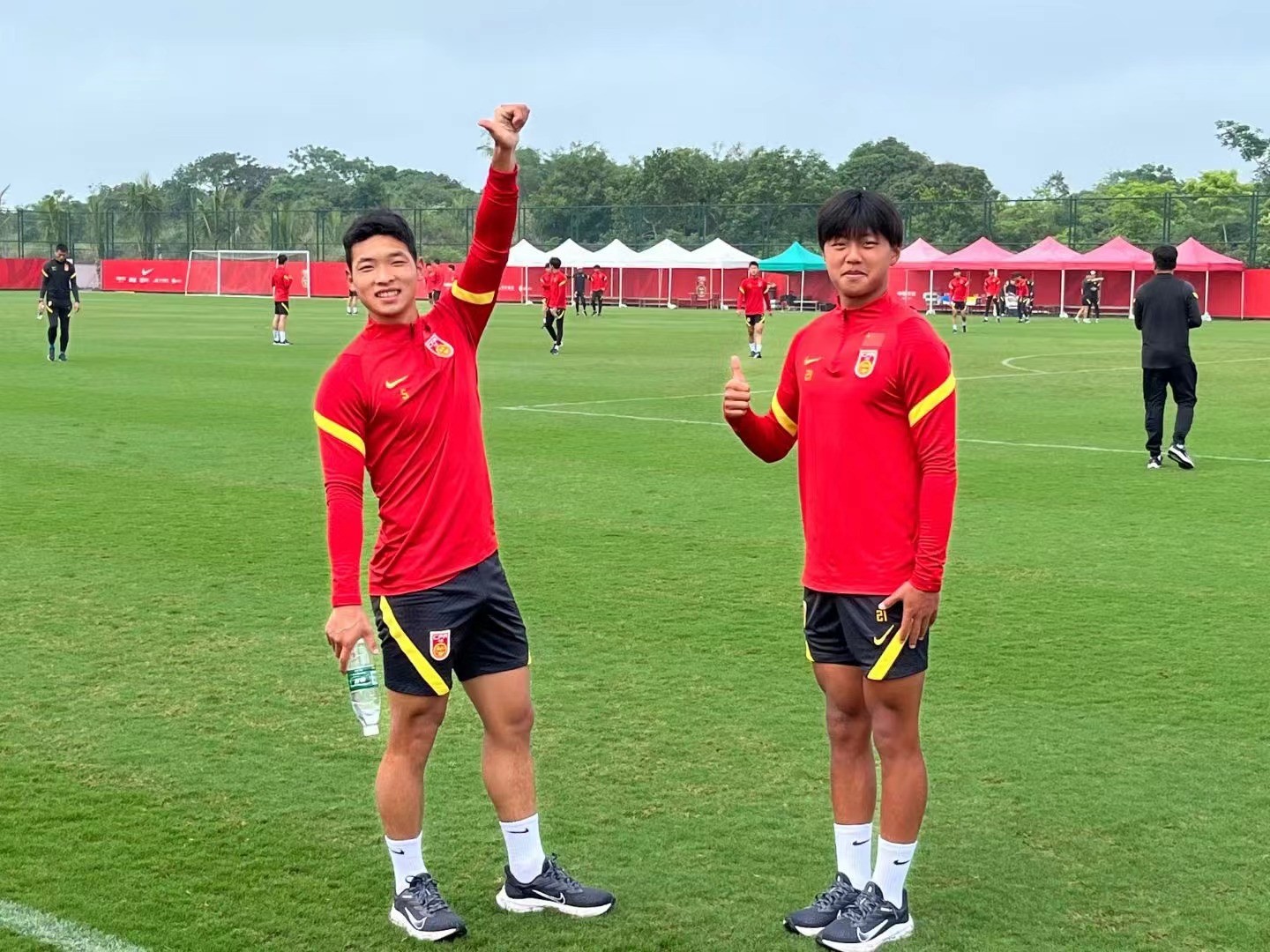
Jia in training.
The younger generation in China also misses out partly due to the competitiveness of the Chinese education system. Training centers for a wide variety of extracurricular activities are used for kids to get into better schools. And football is no exception. However, the price range means few working-class kids get involved.
“It's not only working-class kids that are missing out either,” founding editor of Wild East Football Cameron Wilson explains. “It’s middle-class kids as well. Whereas working class kids don't have the money, middle-class kids don't have the time. I’ve spoken to coaches in Shanghai and they all say the same thing: ‘quite a few kids come and play football but when they get older, there's too much homework and they drop out.’”
Evidently, the numbers speak for themselves. Although the football world governing body, FIFA claims that China has 700,000 registered footballers, the Chinese Football Association (CFA) states that the number is a startling 8,000, a measly 0.00057% of the population. If we compare that to Japan, which has 126 million people, less than a tenth of China, they have over 800,000 registered players. Even if FIFA’s numbers are correct, China is a long way off from other countries.
In 2009, Chinese state media, China Daily reported two vice presidents in the CFA, the women’s soccer chief, the head coach of the national Olympic team and Shanghai Shenhua were under investigation or being questioned by the police for match-fixing and bribe-taking. The crackdown marked an attempt to clean up Chinese football, led by then Vice-President Xi Jinping.
“Jia’s generation is still suffering from the corruption in the early 2000s. There wasn't any good domestic football of any kind, so that affected how attractive football was as a hobby or even as a career for kids,” Wilson says.
As President of the People’s Republic of China (PRC), Xi (a Manchester United fan) continues to seek to improve football. In 2016, he unveiled a strategy for China to climb to the top of world football by 2050.
The plan includes goals such as increasing the number of pitches and training centers by 2020 and again by 2030. The ultimate goal is for the women’s team to be ranked as world-class by 2030 and the men’s team to be a “first-class football superpower” by 2050.
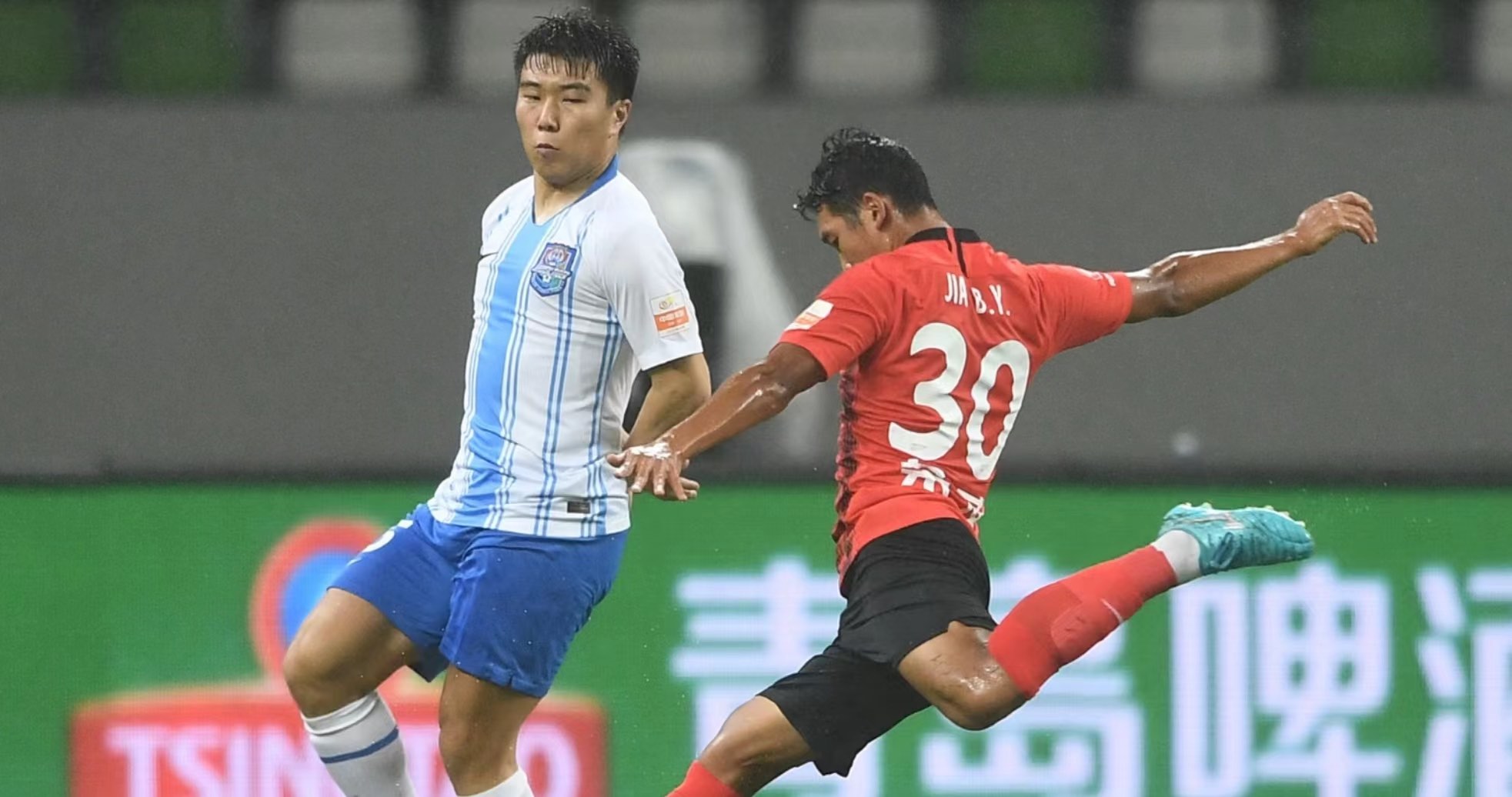
Jia playing for Shanghai Port in the Chinese Super League.
Jia believes that with two or three good seasons in Europe, he can break into China’s senior team. “My dream is to play for China in the World Cup, I want to play more games in Europe so I can improve myself, the Chinese national team and be a Chinese football idol.”
However, the current setup of China’s national team could be harming domestic players and talent cultivation. When European, American and other Asian national teams play games during the domestic season, players will assemble in their respective countries for a week, usually playing one or two games. Limiting international breaks to one week allows players to spend more time playing competitive matches in domestic leagues.
“The CSL is run as a vassal of the national team. It's just there to provide players for the national team,” Wilson tells That’s. “For example, when China plays, they take three weeks off, so that's a big hole in domestic football.
“Now on the face of it, you may think that's a good thing because the national team is together quite often. But the flip side is, it’s only a squad of 23 players. So basically, the rest of Chinese professional football stops for weeks on end. It doesn't work and there's a reason why other countries don't do it; because it's not actually good for football as a whole.”
In this regard, going to Europe will be good for Jia, as clubs on the continent only release players for international duty for one week, as per FIFA’s rules. Why China is allowed to keep players in the country with the national team for so long, despite it being against the rules, no one is quite sure.
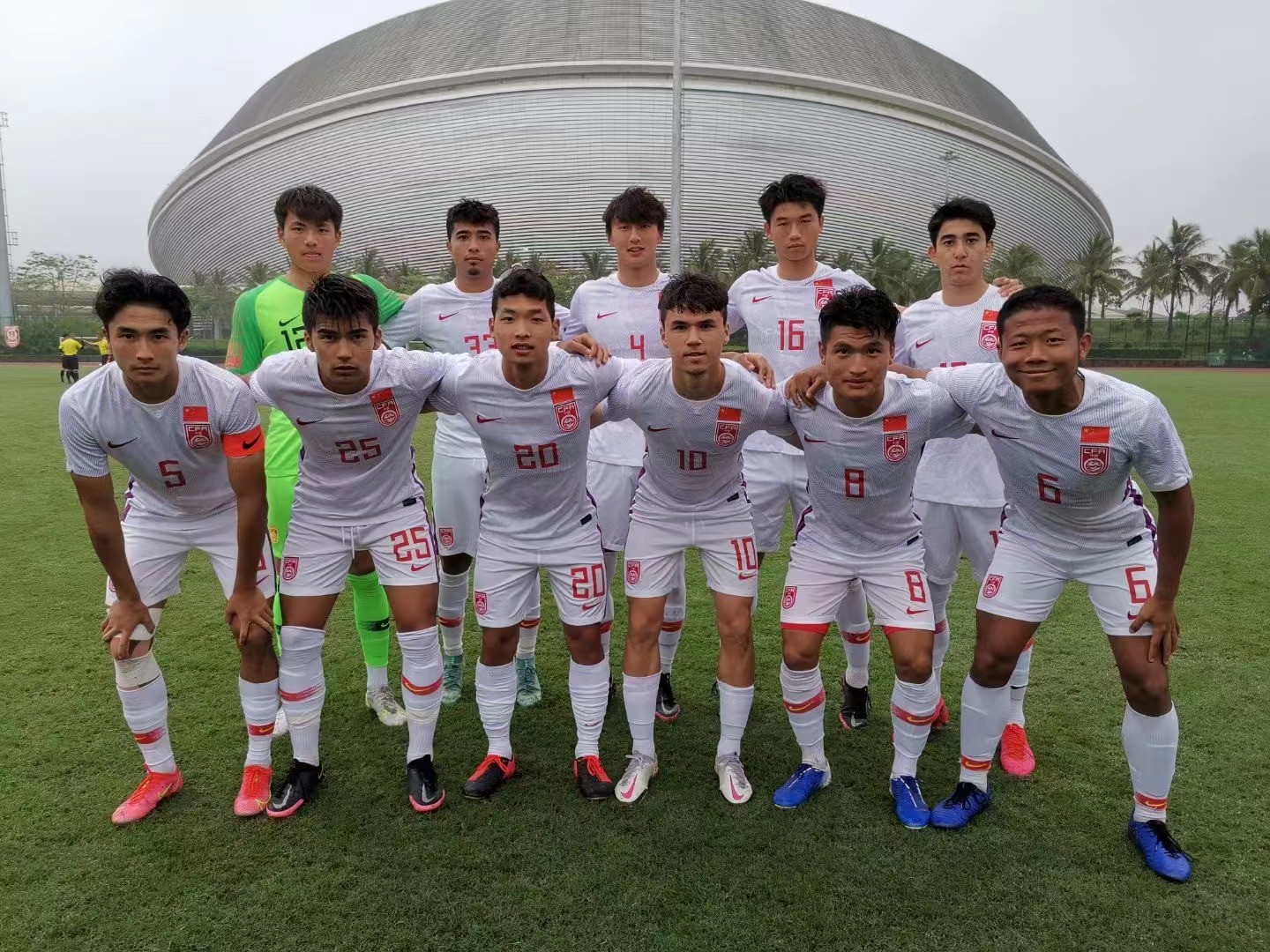
The China U20 national team.
Jia personally experienced the benefits that training in Europe can bring when he was at Shanghai Lucky Star. “When I was 14, I went to England and we trained with the Wolverhampton Wanderers youth academy for three months.
“The Wolves youth team were so much better than us, they could read the game and they were much stronger.” However, Jia believes he has qualities that suit the English game: “I was faster than them and I believe my technique was better.”
When discussing the quality of training during his time in China, Jia believes that not enough time is spent on the mental aspect of football.
“When I train, I want to prepare for anything that might show up in a game, I want to be 100% ready for it and know I can do it. In training, we don’t play many games, we just use one ball and dribble and shoot. The coach tells us how to do it and we just do it. We don’t watch videos or analyze the game, not like in Europe where they do a lot of analysis. I hope we can bring that to China.”
In the CSL, more clubs are recruiting foreign coaches and staff. Jia’s former club, Shanghai Port has six foreign coaches assigned to the first team, including the manager, assistant manager, first team coach, two goalkeeping coaches and the head of the medical department.
With a mix of both Chinese and international coaching staff, in the future, China might be able to develop players that read the game better and possess a strong technical ability too. However, the relationship between the domestic league and international football will need to adapt too.
Jia told us that he wanted to play the rest of his career in Europe but also said that he’d never rule out returning to China. His contract with Grasshopper initially runs for three years but could be extended to five, depending on his performance. If he sees out the full five years, he’ll be 24 and approaching his prime.
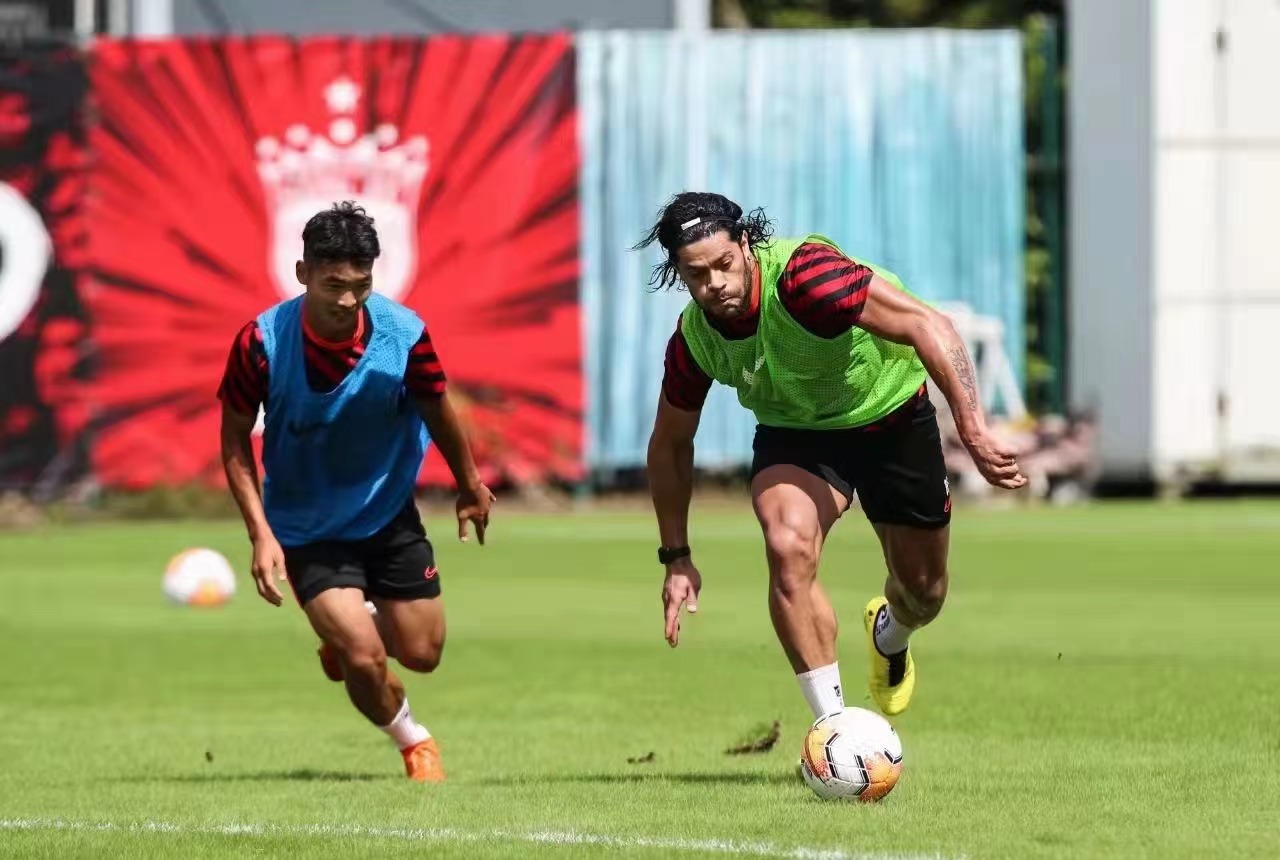
Jia training with ex-Shanghai Port midfielder Hulk.
Whether Jia returns to China only to compete in international games or to play for a club on the mainland remains to be seen. However, China’s domestic league is currently feeling the strain of the COVID-19 pandemic.
In May 2022 it was revealed that players at Chongqing Liangjiang Athletic Football Club in the CSL resorted to delivering waimai (takeaway) and driving DiDi taxis because they hadn’t been paid for 16 months.
On May 19, Chongqing Liangjiang midfielder, Feng Jin, explained the situation at the club in a post on Weibo. He also admitted that some players borrowed money and took out credit cards to support their families.
Three days before Feng’s May 17 post, Chinese media reported that players at the club refused to show up for training. The following day, the club released a statement saying that they had stopped training and they were "forced by reality, by necessity and by livelihood."
READ MORE: Unpaid Chinese Footballers Deliver Food to Make Ends Meet
The CSL season usually begins in February or March and ends in November or December, but due to the COVID-19 pandemic, it was announced on May 23 that the season would begin 12 days later on June 3.
The following day, Chongqing Liangjiang Athletic announced they would be withdrawing from the league and the team would be disbanded due to financial difficulties.
Chongqing Liangjiang are one of 11 Chinese football clubs from the CSL, China League 1 (CL1) and China League 2 (CL2) to fold since the end of last season. And lets not forget the 2020 league champions, Jiangsu Sunning FC, who dissolved in February 2021, three months after lifting the trophy.
On May 27, Dalian were informed they would be playing in the CSL in place of Chongqing Liangjiang, despite having spent pre-season preparing for games in CL1 and only having one week to prepare for life in the top division.

A game between Hebei and Shanghai Shenhua in the 2022 CSL season played behind closed doors.
The pandemic has forced the competition to take on a new format; the 2022 season will be played wiith 18 teams. The league’s teams are divided into three groups and they will play their games across three cities: Dalian, Haikou and Meizhou. Each club will play every team in their group twice. The teams that finish in the top half of the league will play in the ‘Championship Stage,’ competing against other top half teams for the title. Teams in the bottom half of the league will play each other to avoid relegation to CL1.
Football club staff, including players, will live in hotels in the cities in which they play and operate in 'bubbles' away from society, similar to what clubs in Europe did during the COVID-19 lockdowns in the 2021-22 season.
Fans are rarely allowed to games, and because most teams are not playing in their own city, when spectators are allowed in, attendance is low. This means that clubs are making less money from tickets and revenues are taking a hit.
For Wilson, despite an increase in facilities and more international standard coaches, years of poor performances on the international stage, the underwhelming state of the domestic game and corruption have affected how Chinese people view football.
“A well-developed grassroots system isn't a sure-fire solution. China needs a football culture, an awareness and a love of football in wider society that isn’t there right now. It is that kind of basic culture that feeds people to be interested and want to be part of a grassroots system in the first place.”
Jia shows that China can develop players and the country has demonstrated a desire to progress facilities and bring more top staff into the game. Crucially, Chinese football does not only need to see a change in the approach of the relationship between the CSL and the national team, but also a mobilization of people to not only play from a young age, but to love the beautiful game too. However, when professional clubs keep dropping from the league like flies, it might be easier said than done.
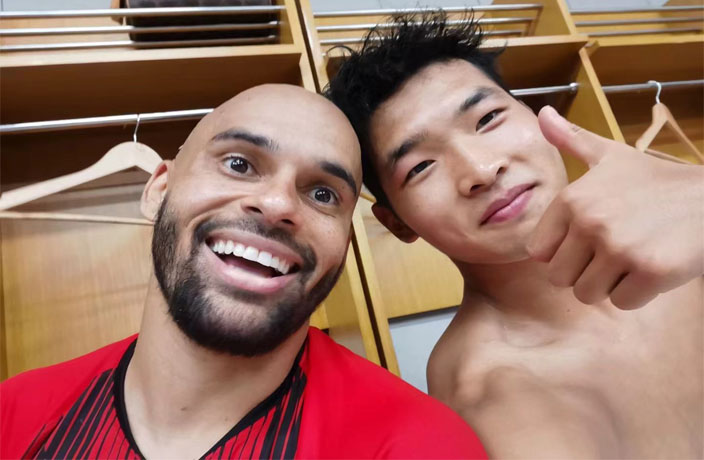




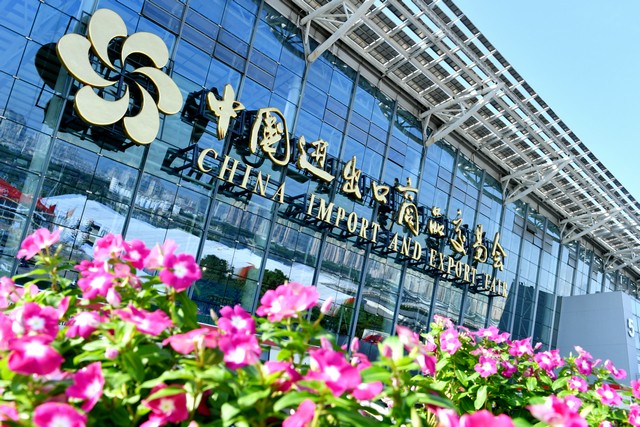

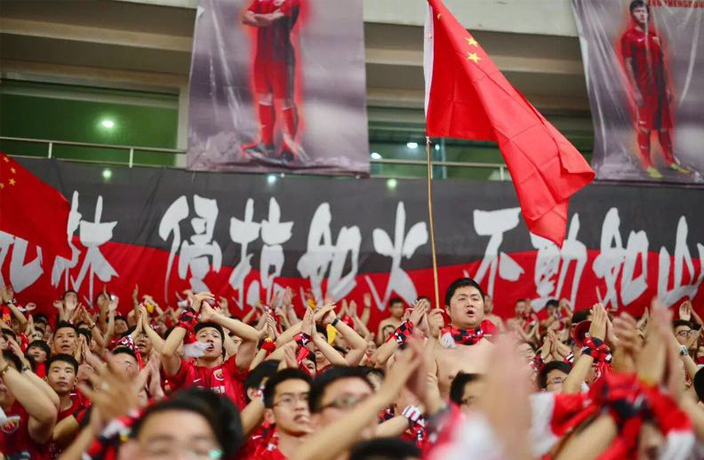














0 User Comments